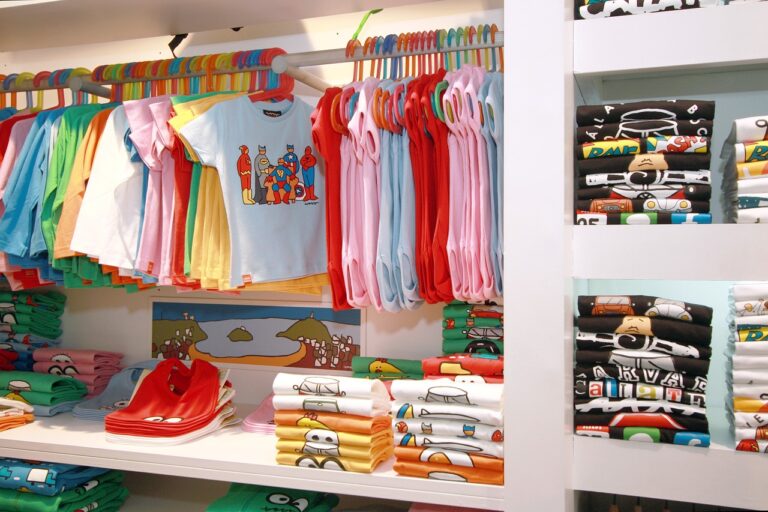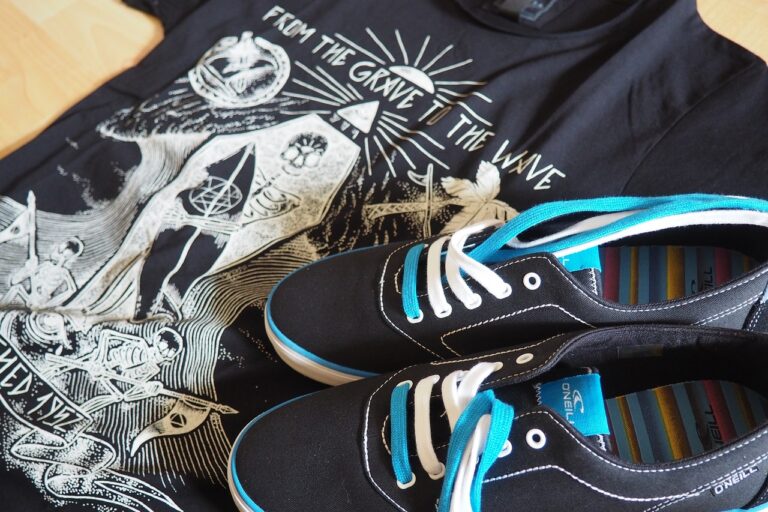Fashion and Digital Retail: Trends in Online Shopping Behavior and Preferences
The fashion retail industry has experienced a significant shift with the emergence of online platforms. Consumers now have greater access to a wide array of clothing options at their fingertips, enabling them to shop conveniently from the comfort of their own homes. This shift has not only revolutionized the way people shop for clothes but has also opened up new opportunities for brands to reach a global audience.
Online fashion retail has also paved the way for smaller and independent designers to showcase their collections to a diverse range of customers. With the rise of social media influencers and fashion bloggers, online platforms have become key channels for promoting new trends and styles. As a result, the online fashion retail landscape continues to evolve, providing consumers with endless choices and unparalleled convenience in their shopping experience.
The Rise of Mobile Shopping Apps
Mobile shopping apps have become increasingly popular among consumers in recent years. With the convenience of browsing and shopping on-the-go, more and more people are turning to their smartphones and tablets to make purchases. These apps offer users a seamless shopping experience, allowing them to easily discover new products, compare prices, and make secure transactions all with just a few taps on their screens.
In addition to convenience, mobile shopping apps also provide a personalized shopping experience for users. By analyzing user data and browsing history, these apps can recommend products that are tailored to each individual’s preferences and interests. This level of personalization not only enhances the shopping experience but also increases the likelihood of making a purchase.
Personalization in E-Commerce
Personalization in e-commerce has become a key strategy for online retailers to enhance the shopping experience for their customers. By utilizing data and technology, companies can curate personalized recommendations based on users’ preferences and browsing history. This tailored approach not only boosts customer engagement but also increases the likelihood of conversions as customers feel understood and valued.
Moreover, personalization in e-commerce extends beyond product recommendations, encompassing targeted marketing campaigns, customized promotions, and dynamic website experiences. By delivering content and offers that are relevant to individual customers, businesses can foster greater brand loyalty and drive repeat purchases. This level of customization not only benefits consumers by streamlining their shopping journey but also enables companies to differentiate themselves in a competitive market landscape.
• Personalization in e-commerce involves curating personalized recommendations based on users’ preferences and browsing history
• This tailored approach boosts customer engagement and increases the likelihood of conversions
• It extends beyond product recommendations to include targeted marketing campaigns, customized promotions, and dynamic website experiences
• Delivering relevant content and offers fosters greater brand loyalty and drives repeat purchases
• Customization benefits consumers by streamlining their shopping journey and enables companies to differentiate themselves in a competitive market landscape
What is personalization in e-commerce?
Personalization in e-commerce refers to the customization of the online shopping experience for each individual customer based on their preferences, browsing behavior, purchase history, and demographics.
How does personalization benefit online fashion retail?
Personalization in online fashion retail helps create a more tailored shopping experience for customers, increasing customer satisfaction, engagement, and ultimately driving sales.
What are some common personalization strategies used in e-commerce?
Common personalization strategies in e-commerce include product recommendations based on browsing history, personalized email marketing campaigns, targeted advertising, and customized landing pages.
How do mobile shopping apps contribute to personalization in e-commerce?
Mobile shopping apps collect data on user behavior, preferences, and location, allowing for more personalized recommendations and targeted marketing messages to be delivered directly to users’ smartphones.
Is personalization in e-commerce limited to just online fashion retail?
No, personalization in e-commerce is not limited to just online fashion retail. It can be applied to a wide range of industries, including electronics, home goods, beauty products, and more.







